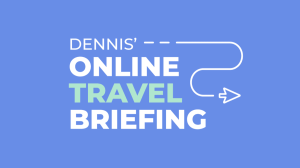Calling Booking.com a Gatekeeper Wouldn't Have the Impact European Regulators Expect
Skift Take

Dennis' Online Travel Briefing
Editor’s Note: Every Wednesday, Executive Editor and online travel rockstar Dennis Schaal will bring readers exclusive reporting and insight into the business of online travel and digital booking, and how this sector has an impact across the travel industry.One can make the argument that fears about the European Commission's pending decision to designate certain companies as "gatekeeper platforms" to ensure fair competition in hotel bookings among online travel agencies, hotels, and metasearch engines could turn out years from now to be overblown.
In 2020, European Commission antitrust czar Margrethe Vestager floated the idea that Booking.com and Google might be designated as such gatekeepers, and be given certain mandates to limit their sway over European hotel bookings.
But at least in Booking.com's case, a recent European Commission Market Study on the distribution of hotel accommodation in the EU, cast some doubt on the merits of such a designation on several levels.
The following are five takeaways from the European Commission report:
1. Booking.com Was the Dominant Online Travel Agency But It Doesn't Have a Monopolist GripWhen the European Commission considers whether to designate Booking.com a gatekeeping platform, worthy of measures to ensure fair competition in European hotel sales, the commission would have to consider the question through several lenses.
Yes, according to the European Commissions' findings, based on 2019 data, Booking.com commanded 67.7 percent of major online travel agencies' market share of hotel bookings. That compares with just 16.3 percent for Expedia Group brands (Expedia.com was 12.8 percent), and 6.3 percent for HRS.
Online travel agency hotel booking market share in select European U
